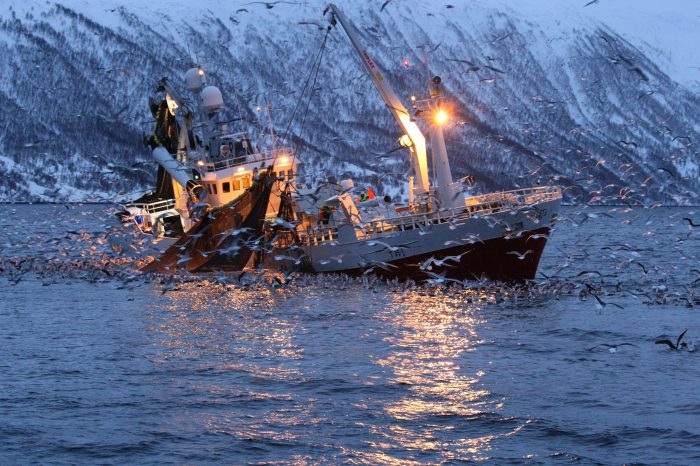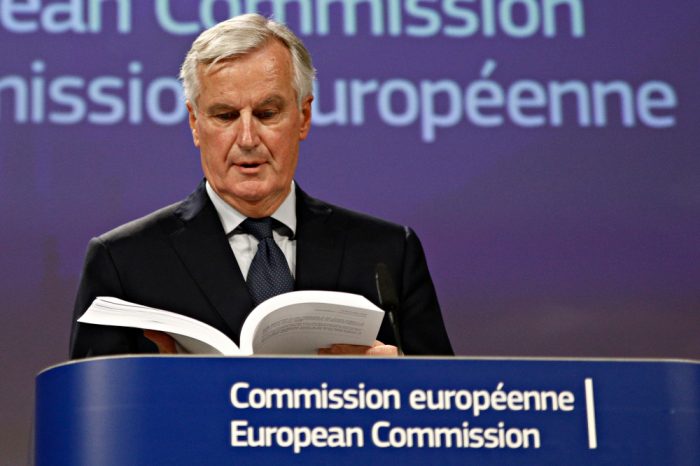Mr Davis’ Brexit bridge to nowhere
Some of us will no doubt remember learning the song Sur le pont d’Avignon in our French classes at school. If you are careful, the bridge in question, the Pont St. Bénézet, may be a possible venue for dancing, as the song suggests, but it no longer fills its original function of providing a crossing of the River Rhône as only four of the original 22 arches, which date from approximately 1345AD, are still extant. When the river flooded, the arches tended to collapse and by the 17th century, the authorities gave up their attempts to repair the damaged masonry, leaving its four surviving arches as a bridge to nowhere.
David Davis is now engaged in a hard sell, trying to convince MPs and the general public that his proposed transitional deal is a stepping stone to full severance from the EU. He called it a “bridge to the future.” If this deal is agreed by our parliament and the EU, nothing could be a less accurate description. Like the Pont St Bénézet in Avignon, it is a bridge to nowhere.
Those Tory MPs making a statement on these lines (and there have been some recently who have use somewhat different terminology to say the same thing) have been denounced as “swivel-eyed” by Claire Perry, the energy minister. The uncomfortable reality is that from what we know of the terms of this deal, it is nothing less than an unmitigated disaster.
We can start with the words of the Brexit secretary himself. Here is his speech. He talks about “strictly time limited implementation period,” yet not only did Mr Davis not specifically mention 21 months but already, rumours are circulating that it may be extended to last for three years.
And during this period, for all Mr Davis’ evasive language and hard-selling, yes, Jacob Rees-Mogg is correct, we would be a vassal state of the EU with no representation yet forced to accept all its laws. Our friends in Fishing for Leave have analysed both Davis’ speech and the EU’s terms for the implementation (aka transitional) period. You can read the analysis of the speech here and a summary of the Commission’s recommendations to the EU council about the terms and conditions for the transitional arrangements here.
The European Council has now (today 29th January) published an annex to its guidelines of 29th April 2017 which covers the transition period. You can read the document here and an analysis of it here. “Vassal State” sums it up well. In case anyone is in any doubt, Clause 13 insists that during the transition period, “The Union acquis should apply to and in the United Kingdom as if it were a Member State. Any changes to the Union acquis should automatically apply to and in the United Kingdom during the transition period.” We’ve got to accept the whole caboodle and we don’t have any say in what may come our way. Davis assured the Select Committee that it takes a long time for new EU laws to pass through the system so it was unlikely that anything which was still only in the pipeline on Brexit Day would actually get through onto our statute books at the end of the transitional period. This is wishful thinking, The Common Fisheries Policy was rushed through in three months in order to be in force when the UK joined in 1973.
The Council document also denies us the right to sign any trade deals during the transition period without the EU’s permission. Clause 16 states:- “During the transition period, the United Kingdom may not become bound by international agreements entered into in its own capacity in the fields of competence of Union law, unless authorised to do so by the Union“
The Council document interestingly did not repeat the Commission’s refusal for us to piggyback on any deals which it has signed with third countries. Clause 14 of the Commission document was unequivocal: “It is also recalled that as from the date of its withdrawal from the Union the United Kingdom will no longer benefit from the agreements concluded by the Union, or by Member States acting on its behalf, or by the Union and its Member States acting jointly.” In other words, we would have to agree not to ask the countries in question if they still wished to keep the same trading arrangements with the UK. We would essentially be under “WTO rules” with the rest of the world. Is its absence a “concession?”
Whatever, we would be stuck in the EU’s customs Union. As we have mentioned countless times before, if we are in the Single Market, there is NO NEED to be in the Customs Union. The two are NOT joined at the hip. “Davis, come here, you bad boy. Your punishment is 100 lines; write out the following until the message sinks in:- we do not need to be in the EU’s customs union after Brexit. “
Add to this an insistence that the ECJ will have an ongoing role in the UK’s affairs (Clause 10 of the Council document) and a continuation of free movement of people (Clause 16). The Council document only briefly mentions the EU budget (Clause 17) but the Commission’s insistence on a payment into the EU’s coffers which is little different from our current payments as a member state appears to be implied.
Naturally, during this transition period, we will be subject to the Common Fisheries Policy (see Clause 21 of the Council Document) which is a disaster. Indeed, if it is extended beyond the current 21-month period, there will be very little left of our fishing industry, which would be catastrophic given that Fishing for Leave’s proposals would have turned the UK into a world leader in fisheries management and would have revived our coastal communities.
What is more, any concessions made to the EU in any transitional deal cannot easily be revoked when it is replaced by a long-term arrangement. Because this “transition” is part of a new treaty AFTER Article 50 terminates the current relationship, and because we will have agreed to replicate and adopt all EU laws, we will create a “continuity of rights” under Article 30 and Article 70 of the Vienna Convention. As this new transition treaty will not terminate with a clinical Article 50 clause where “the treaties (& obligations) cease to apply”, the EU will have grounds to argue that because we undid Article 50 and re-adopted the entire Acquis with no clear exit clause that their rights and obligations established under the transition treaty should continue past 21 months.
The EU may be eventually proved wrong to argue so, but protracted litigation on what is a grey area of international treaty law could tie this country in knots and quickly erode the minuscule resistance within the British establishment to concede to any EU demands.
To say therefore that this transitional arrangement is unacceptable, even if by some miracle a new deal could be signed in 21 months with no continuity, is hardly the language of “swivel-eyed loons.” It is merely stating what over 17 million people voted for in June 2016 – in other words, we must leave the European Union. Adopting the transitional terms on the basis of the Commission and Council documents would be like having a dance on Pont St Bénézet in Avignon – once the fun is over, your only choice is to walk off the bridge at exactly the same place where you walked on. In other words, we would not be out of the EU in any meaningful sense of the term – not in 2019, not in 2021, maybe not ever. It is a complete surrender – the worst of all worlds. The sooner the likes of Claire Perry, David Davis and indeed Theresa May realise this, the better. If they don’t, their party will face the wrath of voters all too soon and could find itself in the middle of its worst crisis since the repeal of the Corn Laws in 1846. Thankfully one MP has realised this. His colleagues need to wake up quickly. It really is that serious.








